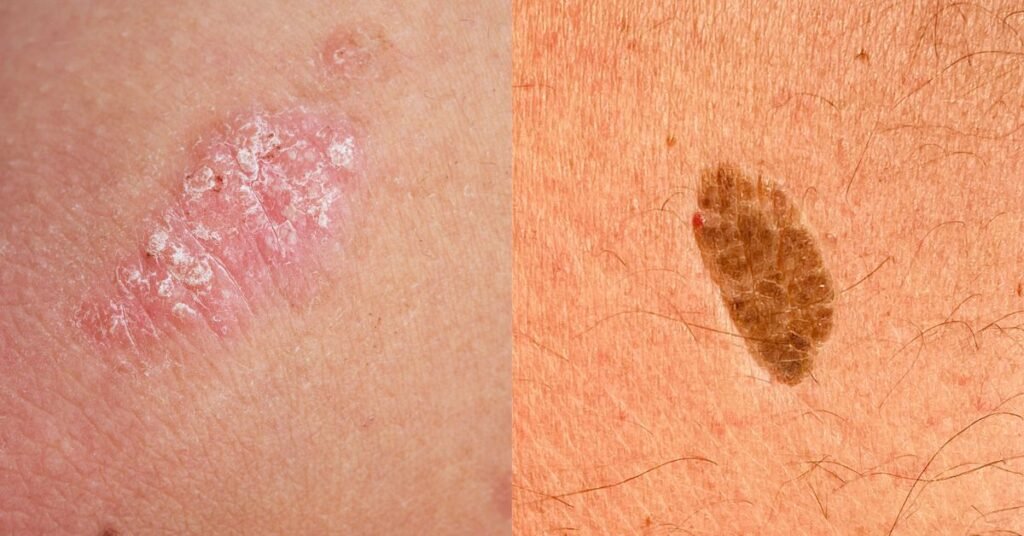Skin cancer is a condition that causes abnormal and uncontrollable cell growth in the outer layer of your skin. This cancer may affect people of all ages, with potentially millions of new diagnoses happening every year. Here are some things to understand about the underlying causes of skin cancer:
Ultraviolet (UV) Radiation
UV radiation is a harmless light from both the sun and man-made sources. You can receive exposure to this radiation in tanning equipment or by going about your day under the sun. The major varieties of the sun’s ultraviolet light reaching the Earth’s atmosphere are known as ultraviolet A and ultraviolet B. UVB radiation is responsible for sunburn and eye problems and contributes to a greater extent to cancer development on your skin. Similarly, UVA rays have longer wake lengths that can reach further into the skin and disrupt the DNA formations indirectly. It may cause mutations and allow room for cancer development.
Genetic Factors
Heritability could also play a significant role in the incidences of skin cancer. You have a higher risk of developing cancer if someone in your family has or once had the disease. In hereditary diseases like xeroderma pigmentosum, the chances of this cancer are likely elevated. Currently, it is not known how to effectively fix the harm caused to DNA by UV radiation. This type of cancer is more severe in people with a light complexion and blue or green eyes. That is because they have less skin pigment called melanin, a substance that filters the UV rays.
Compromised Immunity
The immune system plays a large role in identifying and destroying foreign cells in the body. People with a diminished immune system or ailments that weaken it are also possibly at a higher risk of developing certain cancers. Some of these health issues include having an organ transplant, people taking immunosuppressive drugs, and HIV/AIDS patients. Those who have these conditions are frequently on medications that suppress the immune response. When the immune system is repressed, it could make it easier for cells to multiply unchecked to form tumors.
Exposure to Some Chemicals
Exposure to some chemicals, such as arsenic, coal tar products, and certain oils, likely increases the risk of developing cancers. Upon direct contact with the skin, these may cause damage to the DNA and induce mutations in skin cells, thereby promoting the formation of cancers. Inhaling fumes or particles from these substances and absorbing them into the body could also cause manifestations of cancer.
Age and Gender
Aging is associated with an increased risk of skin cancer. When the cumulative effects of UV exposure, chemicals, and drugs compound over time, it is possible to develop this condition. Men are more likely than women to get skin cancer, most likely as a result of higher occupational sun exposure levels and less use of sun protection products.
You Can Also Discover: What Is Mommyphilia
History of Skin Cancer or Pre-cancerous Lesions
Skin cancer and actinic keratoses, also known as precancer, could create a risk for future skin cancers. For patients who have a history of these conditions, effective management involves ongoing skin evaluations and follow-up by a dermatologist. Early detection and intervention increase the likelihood of fully recovering from this kind of cancer.
Prevention and Early Detection
Understanding the causes of skin cancer, considering known hazards you are exposed to, and taking steps to reduce those risks are all part of prevention. Skin inspections, including your own and those done by a professional, should aid in early detection. The ability to find cancer in its early stages or a precancerous formation before the disease has spread could keep it manageable with treatment.
Although the incidence of cancer on your skin is a serious problem, many people have certain risk factors that can be successfully addressed and controlled with the right knowledge and action. In order to tackle this prevalent yet frequently preventable illness, prevention techniques should be customizable. Contact a skin specialist to discuss how they can protect your skin health.


